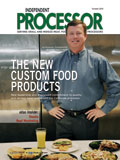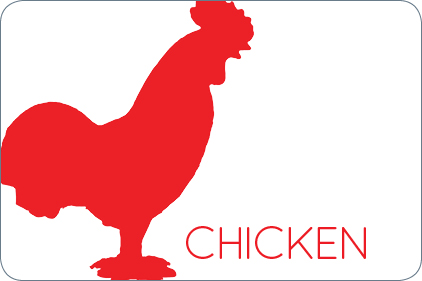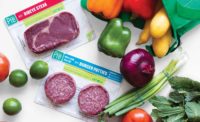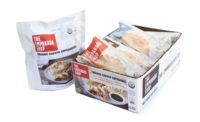

As a large supplier to leading quick-service restaurants and food manufacturers throughout the country, Custom Food Products has long been a valued partner for other companies in the food industry. After a period of financial difficulty, the company is re-energized and refocused on its strengths, and it has aggressive growth plans.
Custom Food Products was founded in 1958 and specializes in customized, fully cooked proteins. With plants in Carson, Calif. (also the company’s headquarters) and Owingsville, Ky., the company has considerable versatility and reach. It supplies items like roast beef and Philly cheesesteaks to leading restaurant chains. Along with its foodservice customers, it also supplies ingredients, such as pizza toppings and pocket sandwich fillings, to large industrial food companies. It is also a contract manufacturer for products like precooked sausage.

Custom Food Products has enjoyed numerous long-term relationships with its foodservice and industrial customers, notes Jon Hickerson, president and chief operating officer of the company. The longest relationship dates back 40 years, while many others have lasted for 10 or more years.
Hickerson joined the company as COO about eight years ago after spending 10 years with ConAgra. The company was looking to aggressively expand its Kentucky plant and modernize its operations in Southern California, and he was asked to help facilitate that growth.
“We added on [to the Kentucky plant] so that we could get into more value-added products, and we really focused on consolidating the two operations in California into this new facility,” Hickerson says. The company’s 150,000-square-foot building in Carson, formerly owned by an airline supplier, includes multiple production lines, as well as plenty of freezer space and dry storage.

Recovery and refocusing
In 2007, Custom Food Products went through a Chapter 11 bankruptcy and was acquired by a subsidiary of Contrarian Capital Management, a private investment firm in Connecticut. Shortly after going through the bankruptcy reorganization, Hickerson says the owners decided to make a management change, and they asked him to step into the position of president.
Hickerson says that he is fiscally conservative in his personal life – he and his wife have never had debt, and when they wanted something, they saved up for it. Applying those principles to running a business seems simple enough, but the results were extremely effective.
“We needed to be better cash managers of our business,” he explains. “We put a strong emphasis on making sure that we were an efficient operator. We managed our inventory well, we had good term rates, we weren’t buying things that we didn’t need or became obsolete. We made a strong effort to operate efficiently in all aspects of our operation.”

Custom Food Products spent about one year focusing inward, putting a strong emphasis on cost, efficiency, safety and quality. Hickerson made a renewed commitment to its customers in the wake of the bankruptcy and revamped the company’s quality system, bringing in a new vice president of quality assurance.
“The first three words of our mission statement are integrity, intensity and intelligence,” he says. “That needs to be a core part of what we want to do here, and we’ve made it a driving force.”
After about eight months, Hickerson brought the sales team to Carson for a surprise tour of the plant. After they concluded the tour, he asked them if it was the same operation than before, and they noted that it was better in all aspects. That was how Hickerson knew it was time to start promoting the new Custom Food Products and growing the business.

The operations and sales teams developed a list of core competencies, and determined the products the company was currently producing and could sell to existing customers. The company’s R&D expert also put together a list of products that the company could make with its existing capabilities. Lastly, each sales person listed two new accounts, and they set out to sell to those companies.
The results were immediate. The sales team achieved about a 50-percent success rate with its list of dream customers. The company developed new products, like pot roast, and sold them to new customers. It also looked for strategic opportunities in the market and developed a Canned Beef Replacement item. This product is a one-to-one substitute for South American canned beef. This decision really paid off earlier this year when the supply of canned beef from South America was found to be tainted with residual antibiotics.
Custom Food Products also increased sales with several key customers.

“Up until last year, we only did one item for [a leading quick-service restaurant],” Hickerson says. “We are the second-largest supplier in their entire network, but we needed to show them that we can do more than roast beef. That was a focus, and now we’re doing the roasted chicken that’s part of their sandwich line.”
The company’s quality has also risen, thanks to its customer-first philosophy. On-time delivery rates have risen to 99.7 percent, and the company has spent approximately $3 million in capital expenditures to improve its operations. One of the most recent developments is the addition of x-ray systems on all of its lines.
“That’s one of the commitments that we’re making to our customers,” Hickerson says, “that we’re doing everything in our power to stay ahead of new food technology and new processes for safety.”
Independent results have verified Custom Food Products’ initiatives. Both of the company’s plants received dual certifications from the Global Food Safety Initiative and British Retail Consortium after being audited this summer.
Hickerson notes, “One auditor said CFP now holds the record for the fewest issues of any of the over 100 audits he completed to date. He praised CFP’s best practices, ranging from our protective measures to what he dubbed our ‘exemplary research and development system.’”
Hickerson adds that Custom Food Products is as healthy as the company has ever been, and the work in strengthening the company internally has left it better able to handle the economic downturn that’s sent other companies into tailspins.
“We were actually more aggressive in going out and getting new business,” he notes, “because we knew that there would be opportunities out there.”
Along with the company’s new customers and products, Custom Food Products will be focusing on natural products to meet the need in California. Between organic growth and potential acquisitions, the company’s goal is to double in size in five years.

Keeping up the good work
Custom Food Products has put in place several strategies to make sure the company doesn’t regress. Fourteen key performance indicators, including operations efficiency, quality, customer service and employee safety, are reviewed on a weekly basis.
“This is where we can see that our operations are becoming more efficient, that our quality is improving and that our safety performance [is going up],” Hickerson explains.
New management employees are brought up to speed on Custom Food Products’ practices through a training program at the Kentucky facility. This “basic training” outlines things like the company’s good manufacturing practices, its HACCP program and its food safety policy and procedures.
“When they come in here [to Carson], they have a pretty good idea of what we do and how we do it, so they can hit the ground running,” he says.
The company has also implemented a program to get reports from its customers every quarter, instead of once a year. Hickerson says that it eliminates the “halo effect” of being graded solely on the last 30 to 60 days and requires more active communication and customer service.
At the start of the reorganization, Hickerson wanted to unify the company’s team members and to foster a team atmosphere. While discussing the “new Custom Food Products” with the employees, he challenged them to donate to a charity called Manna Worldwide, which sets up feeding centers for impoverished children. Last year, between employee donations and company matching funds, the Carson facility donated $25,000 to support four feeding centers in Mexico.
“A huge part of what I thought was important was for us to come together as a team on something that didn’t benefit us; it was for somebody else,” he says.
Now that three years of work have paid off, Hickerson says that fixing the operations aspect was the easiest part of the company’s revitalization, thanks to his background in engineering, while getting out and selling the business was the hardest.
“I’d hate to admit that to my sales people,” he says with a laugh,” but as you know, there’s a whole bunch of other companies who want that same business.”



.png?height=200&t=1720707236&width=200)